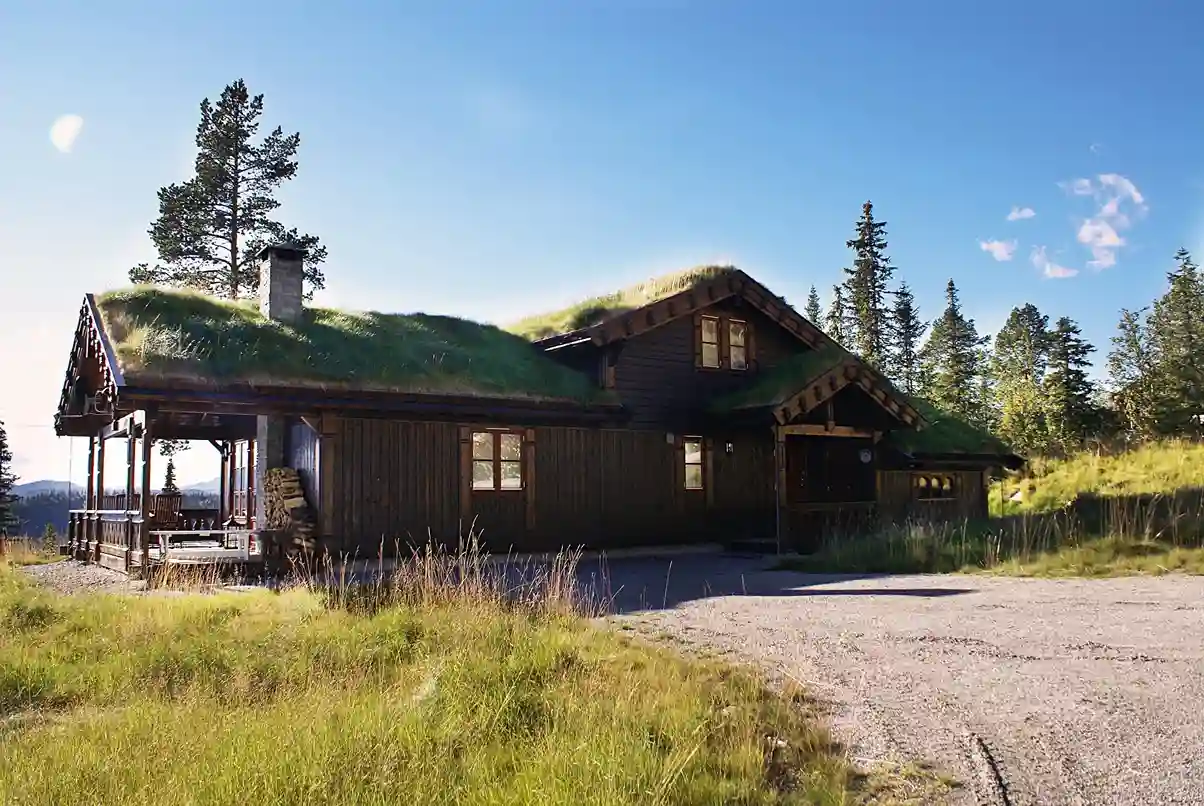Washington squatter rights are more than just legal jargon — they offer a real pathway for turning long-term, unauthorized occupancy into legal ownership. This information is essential for any landlords in this state.
This guide provides a clear and straightforward explanation of how adverse possession laws in Washington state work, helping both property owners and those looking to claim a property better understand their rights and responsibilities.
To start our article today, let’s take a quick glance at the table of quick facts below that provide a short overview of key criteria affecting landlords, tenants, and squatter situations in Washington:

Quick Facts About Renting And Washington Squatter Rights Laws
Washington Squatter Rights: An Overview
Understanding squatter rights in Washington is essential for anyone dealing with the state’s property laws. This part highlights key points, including adverse possession under Washington Revised Code §§ 7.28.050–7.28.090, the distinctions between squatting and trespassing, and the truth behind the "30-day squatter rights" concept.
If you were ever wondering, “What are squatters' rights in Washington?” or “How can a squatter claim ownership?”, this guide aims to provide clear insights and legal pathways related to property claims.
Definition of squatter rights
The controversial squatter rights, specifically Washington squatter rights, refer to the legal protections that a person occupying a property without explicit permission may eventually acquire through the process of adverse possession.
Simply put, if a squatter meets all statutory requirements under the adverse possession laws in Washington state, the squatter can eventually claim legal title.
Because of that, this concept is often intertwined with the idea that if someone openly occupies a property for a statutory period—usually cited as 10 years of continuous possession—they may secure legal rights to that property. This rule has led many to ask: is squatting legal in Washington state regarding eventual ownership?
Washington Revised Code §§ 7.28.050–7.28.090
The Washington squatter rights legal framework is primarily encapsulated within the Washington Revised Code §§ 7.28.050–7.28.090. These statutes define the conditions under which an adverse possession claim may be successful.
They spell out the requirements, which include the continuous and notorious occupation of the property and the need for the squatter to assert their claim publicly. For those researching how to claim squatters' rights in Washington state or what rights do squatters have, understanding these codes is essential.
Squatting vs. Trespassing in Washington: Key Differences
Although often used interchangeably in everyday conversation, Washington squatter rights and trespassing are distinct legal concepts.
Trespassing generally involves unlawful entry onto someone else’s property, whereas a squatter—despite beginning as an unauthorized occupant—may acquire legal rights over time if they meet all statutory requirements. Key differences include:
- Intent and Duration: Trespassers often leave quickly, whereas squatters may occupy a property continuously for years. This prolonged occupation is essential for an adverse possession claim.
- Legal Recognition: While trespassing is clearly illegal, some instances of squatting can evolve into legitimate claims under Washington state’s adverse possession laws.
- Property Owner’s Remedies: The legal remedies available to property owners differ considerably between trespassing and adverse possession cases.
The nuanced differences mean that if you are exploring Washington squatter rights, it is crucial to understand the underlying legal framework and how the law differentiates between an uninvited guest and a claimant to property ownership.
Adverse Possession in Washington State
The concept of adverse possession plays a pivotal role in Washington squatter rights. Adverse possession allows an individual who occupies property without permission to eventually obtain legal ownership if they meet all required legal criteria.
What is adverse possession under Washington State laws?
Adverse possession under Washington law is a legal doctrine that enables a person to claim title to land by possessing it in a manner that is open, notorious, and continuous for a statutory period (commonly 10 years).
This legal principle also forms the backbone of Washington squatter rights and provides a potential path for squatters to convert unauthorized occupation into lawful ownership if they satisfy all the conditions.
Legal requirements for a successful adverse possession claim
For an adverse possession claim to succeed in Washington, the following criteria typically must be met:
- Actual Possession: The squatter must physically occupy the property.
- Open and Notorious Use: The occupation must be visible to any onlooker—this is often why many ask if, “Is squatting legal in Washington state?” when seen from a public perspective.
- Exclusive Possession: The squatter must be the sole possessor, not sharing control with others, including the legal owner.
- Hostile Claim: The occupation must be without the permission of the actual owner.
- Continuous Possession: The occupation must last without interruption for the statutory period ( 10 years, though some references to 30-day squatters' rights pertain to preliminary notices or shorter local measures).
These requirements demonstrate why many property owners remain cautious and why the debate on Washington squatter rights remains a heated discussion among legal professionals and community stakeholders.
How to Evict a Squatter in Washington State?
If you are a property owner facing an unauthorized occupant, understanding Washington squatter rights from the perspective of eviction is just as important as understanding the adverse possession process.

Legal Steps to Eviction Process
Evicting a squatter requires adherence to legal procedures designed to protect the rights of all parties involved. Key steps include:
- Proper Notice: Begin by serving a legally compliant eviction notice. Many landlords ask how I reversely claim squatters' rights in Washington state, seeking guidance on removing squatters rather than claiming the property.
- Filing a Lawsuit: If the squatter does not vacate after notice, the property owner must file an eviction lawsuit in court.
- Court Proceedings: A judge will review the case, where evidence of unauthorized occupation and non-compliance with statutory requirements (including adverse possession claims) is presented.
- Enforcement: Once a court order is obtained, law enforcement is typically involved in the physical eviction of the squatter.
These steps ensure property owners do not inadvertently violate tenant protection laws or other related legal requirements, even as they seek to counteract Washington squatter rights claims.
What NOT to Do: Avoiding illegal self-eviction methods
It is vital to note that landlords must avoid “self‑help” methods such as forcibly removing a squatter without proper legal action. Such measures can lead to legal repercussions, including claims of unlawful eviction.
Even if you’re well versed in squatter laws in Washington state, bypassing the legal process can undermine your position if the squatter’s occupation eventually leads to adverse possession. Therefore, understanding what rights squatters have can help you navigate the situation lawfully and efficiently.
Recent Legislative Changes: Overview of House Bill 2536 (2024)
Legislative updates have a significant impact on Washington squatter rights. In 2024, House Bill 2536 introduced several key amendments intended to clarify the rights of both property owners and squatters.
This bill aimed to adjust the balance of power by reinforcing certain due process rights while also tightening conditions under which adverse possession claims might succeed.
The amendments specifically addressed areas such as the required period of continuous possession and the documentation necessary to support an adverse possession claim.
Is It Illegal to Move into an Abandoned House in Washington?
A frequently asked question related to Washington squatter rights is whether it is illegal to move into an abandoned house. The answer depends on various factors, including the property’s classification as abandoned versus simply vacant and the legal steps taken by the new occupant.
Legal distinctions between abandoned and vacant properties
Abandoned property is typically one that the owner has forsaken with no intention of reclaiming it, while a vacant property may simply be unoccupied for some time. Washington law treats these two scenarios differently.
For example, while squatters' rights might be more evident in a long‑abandoned property, an owner could still assert rights if the property is merely vacant. Clarifying these distinctions is crucial when considering squatting is legal in Washington state and addressing Washington squatter rights.
Potential legal consequences of occupying an abandoned home
Occupants who move into an abandoned property without due diligence may face several legal challenges, including trespassing charges or complications with adverse possession claims. The process to legitimately claim property through adverse possession requires meeting every legal criterion outlined in state law.
Therefore, individuals who want to claim land in Washington state must understand the risk of unintended legal consequences if proper procedures are not followed.
How to claim an abandoned property in Washington State legally?
For those interested in pursuing a legal claim over an abandoned property, it is essential to follow the prescribed legal process. This includes:
- Documenting continuous possession for the statutory period.
- Notifying local authorities and, where required, the legal owner.
- Consulting with legal professionals who specialize in adverse possession laws in Washington state.
Homesteading Laws in Washington: Are They Still Applicable?

Homesteading laws historically allowed settlers to claim property after meeting residency requirements, and these principles still echo in modern discussions of Washington squatter rights.
While modern adverse possession laws have largely supplanted traditional homesteading rights, updated squatter rights and land claims sometimes intersect with these older legal traditions.
In Washington, the remnants of homesteading laws can be seen in the statutory requirements for continuous and open occupation. However, these rules have evolved considerably over time. Today, the focus is firmly on the requirements laid out in the revised code sections and case law precedents.
For property owners and squatters alike, understanding these historical nuances provides valuable context for modern disputes.
Landlord and Tenant Act in Washington: Implications for Squatter Situations
Washington's Landlord and Tenant Act is critical in shaping the legal landscape surrounding Washington's squatter rights. This act governs the rights and responsibilities of landlords and tenants and touches upon situations where unauthorized occupants claim long‑term possession of a property.
If you have ever wondered what squatters' rights are in Washington state in relation to rental agreements, this section is for you. Key points include 1. The necessity for proper notice before any action is taken; 2. The interplay between eviction procedures and adverse possession claims; and 3. The potential liability for landlords who fail to adhere to proper procedures when faced with unauthorized occupants.
These points highlight why landlords must be fully aware of the statutory and practical implications when addressing squatter laws in Washington state.
Landlord Protections Against Squatters in Washington
Washington squatter rights do offer protections to long‑term occupants, but Washington law also provides strong safeguards for property owners. Landlords have access to several legal remedies designed to prevent unauthorized occupancy from evolving into adverse possession claims:
- Timely Eviction Process: Initiating eviction proceedings promptly can interrupt a squatter’s continuous possession, preventing them from meeting the statutory requirements for adverse possession.
- Strict Adherence to Legal Procedures: Following all prescribed legal protocols ensures that eviction actions are valid and can effectively halt a squatter’s claim.
- Defined Owner Rights: Washington law clearly outlines the rights of property owners, providing a structured legal pathway to reclaim their property, even when facing unexpected squatter situations.
- Preventive Measures: Proactive communication and prompt legal action are key in avoiding scenarios where squatters might eventually claim ownership.
Final thoughts
The complex interplay between Washington squatter rights, adverse possession laws in Washington state, and tenant-landlord statutes mean that both property owners and unauthorized occupants must be well informed.
More importantly, property owners must stay updated on legislative changes such as House Bill 2536 (2024) to protect their rights. Likewise, individuals seeking to assert their claim under the state’s squatter rights must carefully document their possession and adhere to all legal protocols.
For in-depth coverage of Washington’s laws, check out more on LeaseRunner.
FAQs
Q1. How do I claim squatters' rights in Washington state?
To claim these rights, a squatter must meet strict legal criteria, including continuous and open occupation for the statutory period, among other requirements.
Q2. How do I claim squatters' rights if I occupy an abandoned property in Washington?
Legal occupation requires meeting statutory criteria, including documenting continuous possession, which is central to adverse possession laws in Washington.
Q3. Can a landlord evict a squatter under Washington squatter rights?
Yes, but the eviction process must follow strict legal guidelines to avoid unlawful eviction claims.
Q4. What is the significance of the “30-day squatters rights” period?
In some jurisdictions, preliminary notices or specific local rules may refer to 30 days, but the full adverse possession claim requires a much longer duration.


